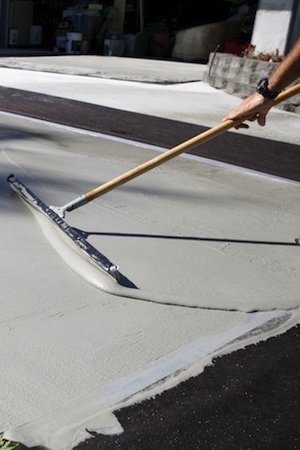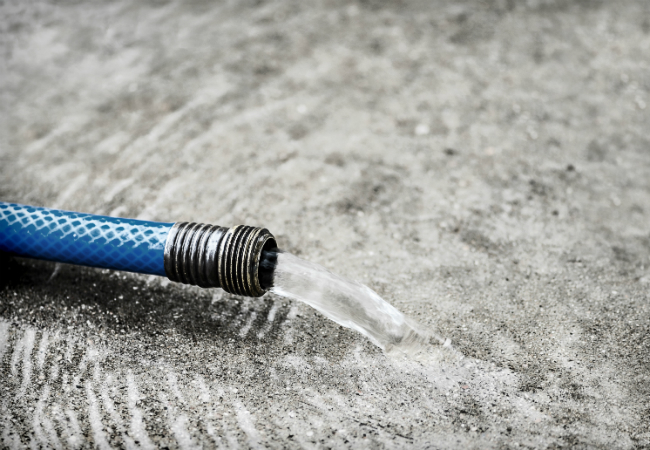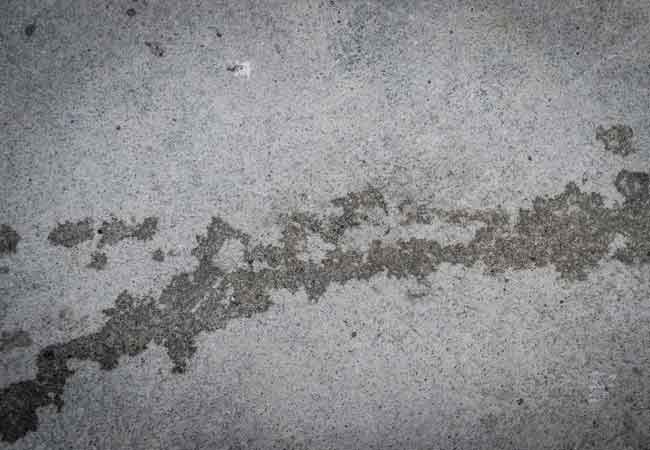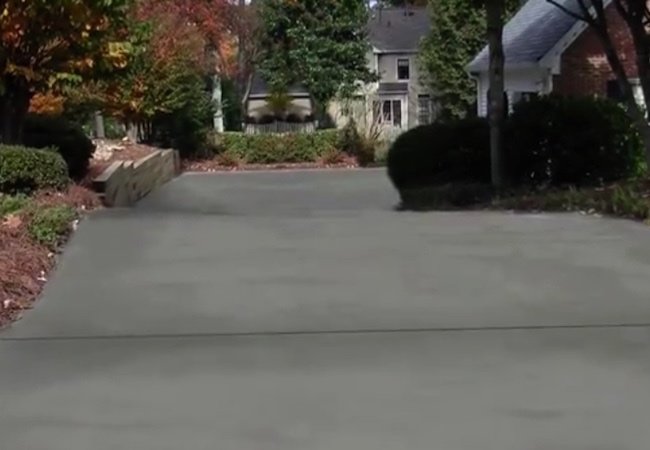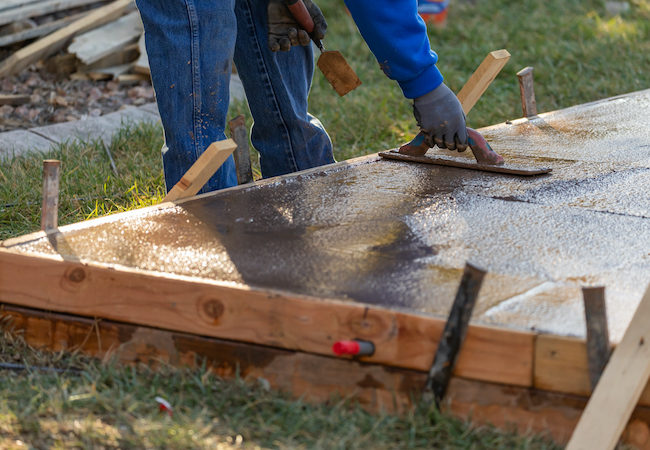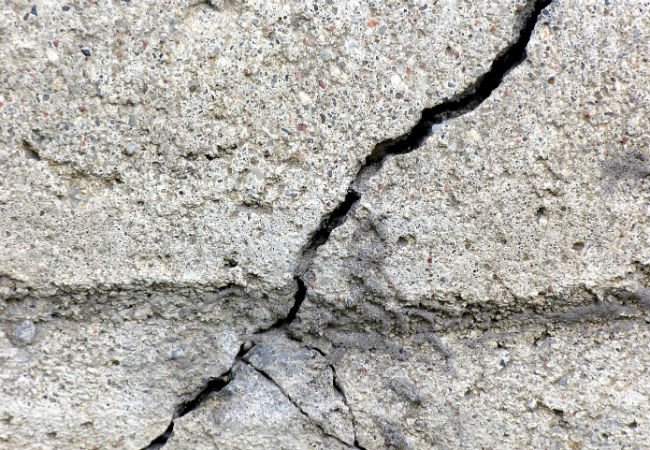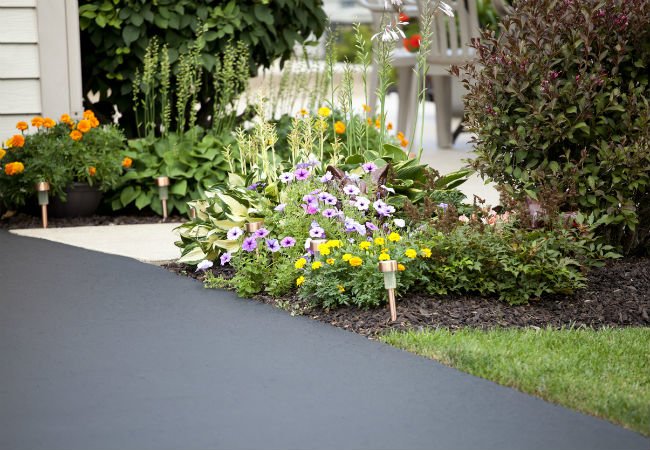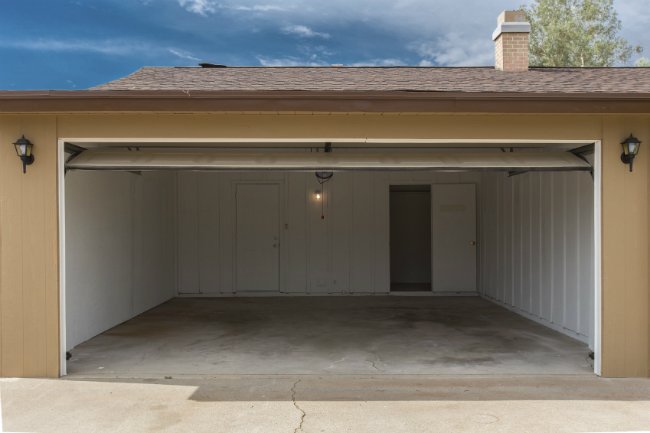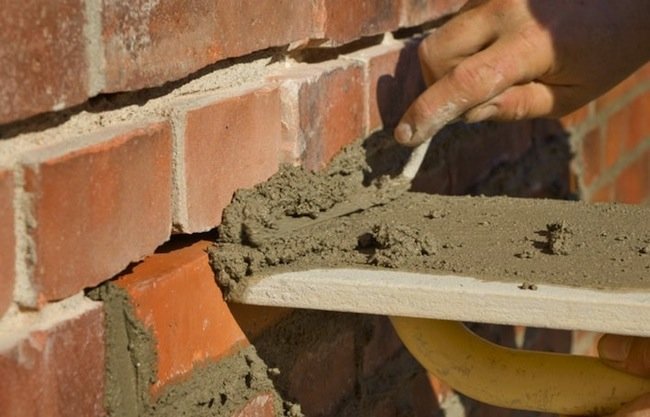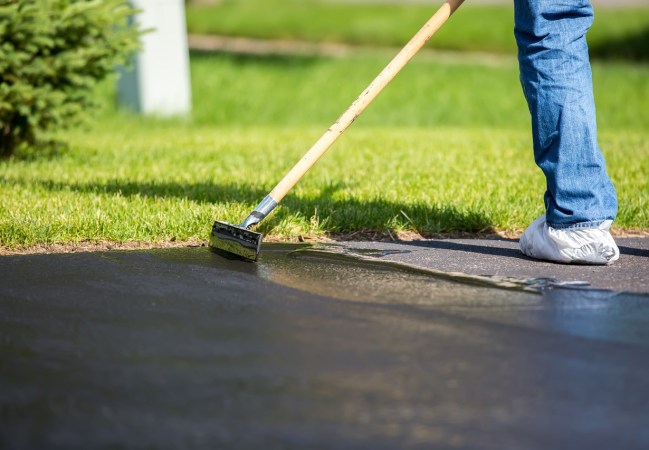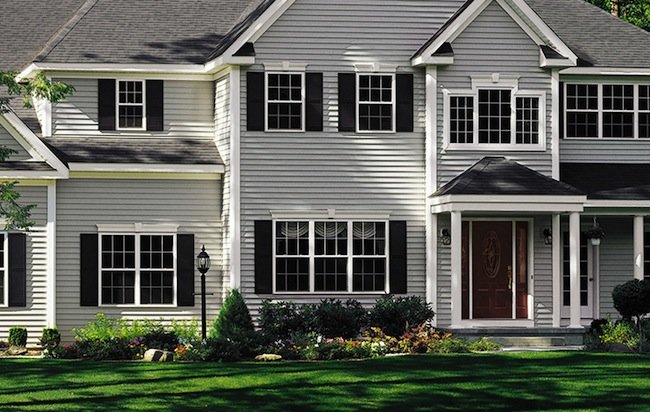We may earn revenue from the products available on this page and participate in affiliate programs. Learn More ›
It’s an old cliché of the Mafia: A fellow gets on the wrong side of La Cosa Nostra and winds up wearing cement shoes at the bottom of a river. Well, those shoes may be made of cement, but little else in the world is composed of cement and cement only. Concrete, however, is everywhere. It’s even in the large, rotating drums of those ubiquitous vehicles we inaccurately refer to as cement trucks. It’s not surprising that people are always mixing up these sedimentary mixes, which look alike and behave similarly. To help you keep them straight, we’ve looked at them side by side—cement vs. concrete—to call attention to the solid differences between the two.
The Difference Between Concrete and Cement
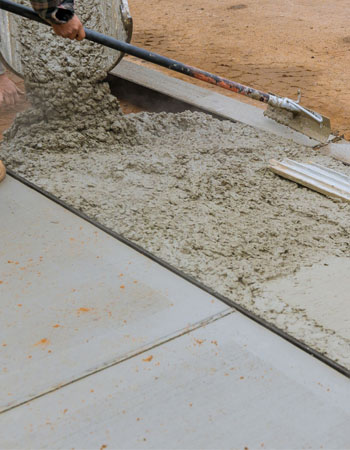
While the terms are often used interchangeably, cement and concrete are, in fact, not the same thing. Infrequently used on its own, cement is actually an ingredient in concrete. For example, your home’s slab foundation is likely made of concrete, and the concrete was made with cement, plus other ingredients.
The Fundamentals of Concrete
Concrete is a mixture of cement, aggregate, and water. Globally, concrete is among the most widely used construction materials in both residential and commercial applications. Its appeal includes the fact that the components to make it are almost universally available as well as its strength and durability that make it a practical and desirable building material.
- Aggregates such as sand, stone, and gravel make up about 75% of concrete.
- The water used to create concrete must be very clean, even drinkable.
- The aggregate materials, too, must be very clean, because any contamination of organic materials can compromise the strength of the concrete.
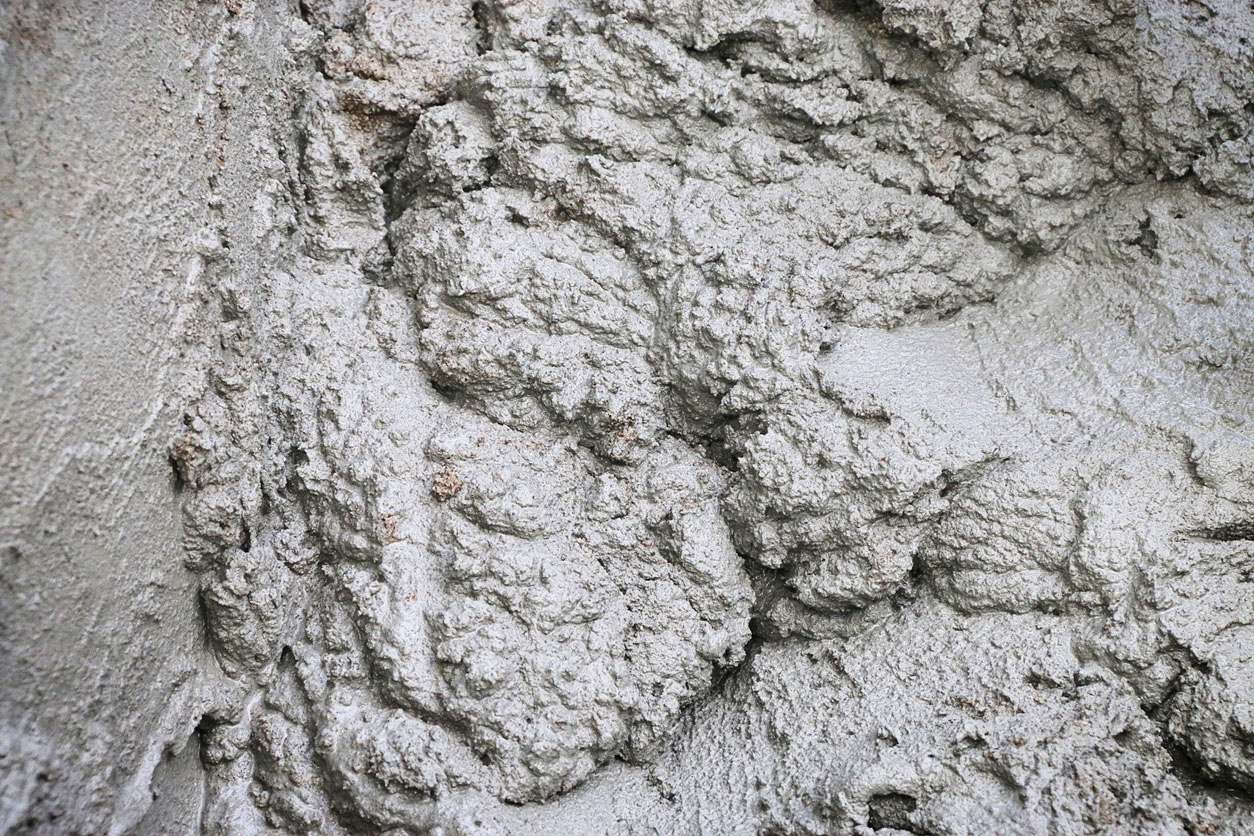
The Fundamentals of Cement
Cement is a binder manufactured from a mixture of iron, aluminum, silicon, calcium, and other substances that are found in limestone, shells, chalk, clay, iron ore, and silica sand. These “ingredients” that are heated to a very high temperature to create a rock-like substance that is ground into an extremely fine powder—cement. Cement is then mixed with water and aggregate to form concrete.
- Modern cement was invented in the kitchen of an English bricklayer in the early 19th century.
- Cement can be mixed with water and used as a grout.
- Cement can be combined with plaster and water and applied to masonry surfaces to create a smooth surface.
Concrete vs. Cement: Did You Know?
While cement can be used on its own, it is primarily used as an ingredient in concrete. Concrete, of course, is the ubiquitous building material found all over the world in roads, bridges, dams, sidewalks, and backyard patios.
Cement itself is made from calcium and silica-rich materials, such as limestone and clay.
Its adhesive properties make it an excellent binding agent, but on its own, cement is prone to cracking.
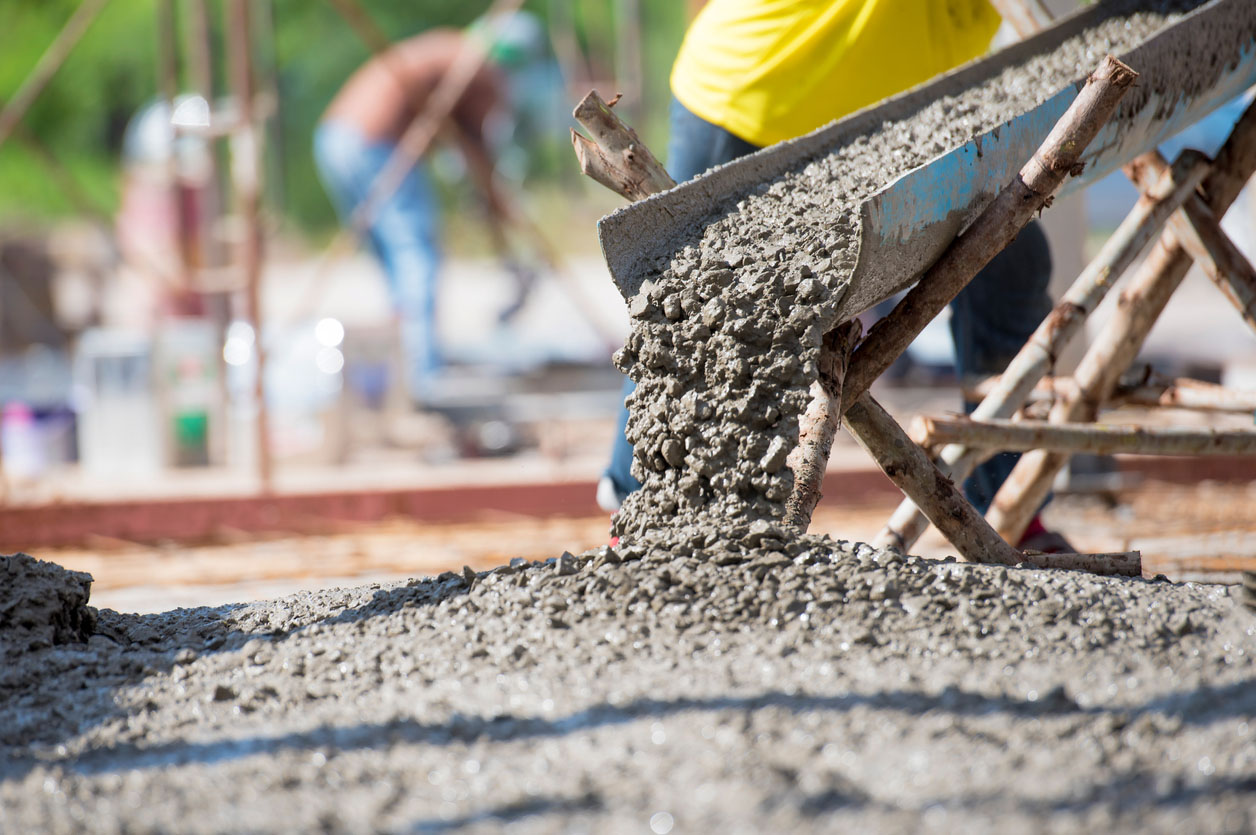
There is cement in concrete.
Here’s one of the main reasons cement and concrete are so often confused. That’s right; when cement mix is blended with water, it creates a paste. And when that paste is combined with aggregates like gravel and sand, the result is what we know and love as concrete.
Concrete is more durable than cement.
Yes, concrete can last hundreds of years, but cement is much less durable. To use an analogy, cement is to concrete as milk is to ice cream. Sure, ice cream has milk in it, but it isn’t milk. It’s actually much better.
RELATED: 8 Surprising Reasons to Bring Concrete Indoors
Concrete works well in larger projects, while cement is more often used in smaller jobs.
One of the strongest and longest-lasting materials known to man, concrete is used to build schools, bridges, sidewalks, and countless other structures. But you don’t need a hard hat to have success with concrete. Amateur handymen use it for DIY projects of all kinds, among them landscape edging, kitchen countertops, and front walkways. Cement, by comparison, is used mainly in smaller jobs (for example, grouting and specialized masonry) and in the repair of cracked or crumbling concrete.

Home improvement stores offer many types of concrete from which to choose.
Complicating matters further is the fact that you can buy dozens of different kinds of concrete. Each type responds to the demands of specific applications. For example, fiber-reinforced concrete, which resists cracking even under immense loads, is a common choice for driveways. There’s also fast-track concrete, employed when time is of the essence. Before purchasing any concrete, be sure to consult with an expert or do a bit of research so that you understand the pros and cons of all the options available. Start your research with our guide to the best types of concrete for any project.
FAQ About Cement and Concrete
Should I use cement or concrete?
It depends on your project, but unless you are needing a grout-type material for very small areas—in which case you’d use cement—odds are you’ll want to use concrete. Pouring a patio in the backyard? Concrete. Setting posts for a fence? Concrete.
Is cement stronger than concrete?
Cement is not stronger than concrete. On its own, in fact, cement is prone to cracking. When combined with aggregate materials and water and allowed to harden, however, cement—now concrete—is extraordinarily strong.
Are driveways cement or concrete?
Driveways are typically made of concrete. Concrete, of course, is composed of cement, aggregate, and water. So, while you could say a driveway “contains” cement, you would more accurately say the driveway is made of concrete. Some long driveways may be constructed of asphalt, which is a softer material that breaks down more quickly.
Can cement be used by itself?
Cement is used by itself in fairly narrow applications, primarily as a grout when mixed with water. It can also be used to repair cracks in concrete.


